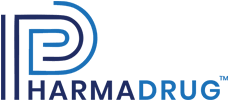
- Results show that oral cepharanthine plus paclitaxel (combination therapy) significantly reduced tumor volume and increased tumor growth inhibition at day 28, the final day of dosing compared to paclitaxel alone (p=0.0049)
- Dose range finding demonstrates that oral cepharanthine-alone was well tolerated in the current in vivo study
Toronto, Ontario–June 16, 2022 – PharmaDrug Inc. (CSE: PHRX) (OTCQB: LMLLF) (“PharmaDrug” or the “Company“), a specialty pharmaceutical company focused on the research, development and commercialization of controlled-substances and natural medicines such as psychedelics and naturally-derived approved drugs, is pleased to announce that the Company’s enteric coated, oral formulation of cepharanthine (PD-001), when combined with paclitaxel, reduces tumor volume and provides improved esophageal cancer tumor growth inhibition. These results support the Company’s continued oncology focus for orally administered PD-001 and serve to substantially leverage the FDA-granted orphan drug designation (ODD) for cepharanthine as a therapeutic to treat esophageal cancer.
In 2021 the Company initiated a series of cancer screening studies aimed at uncovering therapeutic opportunities for cepharanthine when used alone or in combination with standard of care (SoC) chemotherapy drugs. Results from these in vitro studies revealed that of all cancer types screened, cepharanthine displayed the greatest growth inhibition against esophageal cancer. For those studies, the concentration of cepharanthine required to inhibit 50% growth for esophageal cancer was determined to be 1.51µM; a concentration well below that which has previously been used safely in humans1. Here the Company is pleased to report that a once-per-day oral regimen of PD-001, in combination with paclitaxel significantly reduced tumor volume and improved tumor inhibition at the scheduled end of dosing (day 28 post implantation) in its recently completed esophageal cancer efficacy study. For the current study, the chemotherapeutic paclitaxel served as a clinically relevant positive control agent. Following 28 days of paclitaxel administration tumor volume was reduced by 53% compared to the untreated control group. Significantly, paclitaxel provided robust tumor growth inhibition in the early portion of the study, but during the second half, the rate of tumor growth tended to accelerate. This observation mirrors that which is often noted in the clinical treatment of esophageal cancer patients; with the development of chemoresistance often noted after a period of treatment. PD-001 delivered at a dose of 27 mg/kg/day combined with paclitaxel provided an improvement of 41% in tumor volume reduction beyond that of paclitaxel alone (day 28 post tumor implantation). This result was found to be statistically significant versus paclitaxel alone (p=0.0049). PD-001 (27 mg/kg/day) tended to provide tumor growth inhibition as early as day 17 post implantation (40% greater than paclitaxel alone), that peaked at day 20 (84% greater than paclitaxel alone). Persistence of effects for PD-001 in combination with paclitaxel was measured during the ten day study recovery phase during which time drugs were not administered. During this period, those animals that had previously received paclitaxel with PD-001 at 27mg/kg/day (combination therapy) demonstrated a weeklong, statistically significant improvement in tumor volume compared to those treated with paclitaxel alone.
Daniel Cohen, CEO and Chairman of PharmaDrug commented, “We are extremely excited to continue to broaden the use case for PD-001 as a treatment for esophageal cancer. This study outcome serves to further support our goal of moving towards an FDA clinical trial and will provide the Company with the opportunity to fully leverage the benefits of the previously granted FDA orphan drug designation for cepharanthine-based treatment of esophageal cancer. We believe that cepharanthine will ultimately show a wider potential use in the treatment of cancers, specifically in situations where chemoresistance becomes an obstacle to optimal outcome.”
About PD-001 (Enteric-coated Oral Cepharanthine)
Cepharanthine is a natural product and an approved drug used for more than 70 years in Japan to successfully treat a variety of acute and chronic diseases. In clinical research, cepharanthine has been shown to exhibit multiple pharmacological properties including anti-oxidative, anti-inflammatory, immuno-regulatory, anti-cancer, anti-viral and anti-parasitic effects2,3. However, historically cepharanthine’s low oral bioavailability has represented a major obstacle to realizing its full clinical potential.
The Company is focused on advancing the clinical development of an improved and patented enteric-coated oral formulation of cepharanthine (PD-001) to treat responsive cancers and COVID-19. Compared to generic cepharanthine, PD-001 has been shown in rodent and non-rodent models to possess markedly improved oral bioavailability (more easily absorbed). These findings support the development of an orally administered formulation, and in so doing, removes the undesirable requirement for frequent intravenous dosing to maintain therapeutic levels of drug in circulation. Despite enormous research efforts, esophageal cancer has a 5-year survival of only 20%4. Through subsequent rounds of refinement to optimize PD-001 dose and dose interval, the Company endeavours to develop an efficacious, oral therapeutic add-on option to potentially improve outcomes for esophageal cancer patients using SoC treatment.
PD-001 for Cancer
PharmaDrug’s cancer program is based on cepharanthine’s known anti-cancer activities. Cepharanthine has been shown in multiple preclinical efficacy models to inhibit cancer cell proliferation, induce cancer cell apoptosis (death) and restore cancer cell sensitivity to multiple unrelated classes of chemotherapy. Multidrug resistance continues to represent a considerable clinical challenge. As such, preclinical cancer studies aimed at elucidating the mechanisms that underlie chemoresistance; including the critical role drug efflux pumps play in this phenomenon by reducing the intracellular concentration of chemotherapeutic drugs, are of particular interest to PharmaDrug. Cepharanthine has been shown in preclinical studies to potently reverse chemoresistance by downregulating expression of ABCB1, the transcript of which codes for multidrug resistance protein 1, (MDR1, aka P- glycoprotein). Importantly, several prior in vitro and in vivo studies have shown that cepharanthine-mediated reductions in ABCB1 expression restores cancer cell sensitivity to a range of chemotherapeutics including taxanes, vinca alkaloids and platinum-based drugs5-8.
Collectively the two in vitro screening studies already completed by the Company, the noted in vivo efficacy results noted for prostate cancer when combined with cabazitaxel, and the current esophageal cancer study results reported here, continue to reinforce the potential therapeutic opportunities in oncology for PD-001 when used in combination with SoC chemotherapy drugs to provide additive or synergistic benefit to existing SoC treatments. For reference to previous press releases related to PharmaDrug’s ongoing efforts in the oncology space please see previous press releases April 19, April 1, Feb 1, 2022 and Nov 18, Oct 15 and July 28, 2021. The Company plans to fully leverage the streamlined path to approval which comes by way of a FDA Orphan Drug Designation PD-001 for the treatment of esophageal cancer.
Potential of PD-001 to treat Esophageal Cancer
Despite standard, targeted and immunotherapy options, survival from esophageal cancer is dismal. The 5-year survival rate of people with cancer located only in the esophagus is 47%. The 5-year survival rate for those with disease that has spread to surrounding tissues or organs and/or the regional lymph nodes is 25%. If it has spread to distant parts of the body, the survival rate is 5%9,10. Cepharanthine is a natural alkaloid extracted from S. cepharantha Hayata that has been used in Japan to treat several acute and chronic diseases with only rare reports of safety issues and side effects10. The Company previously announced positive results for the combination of cepharanthine and cabazitaxel, a second generation taxane, for the treatment of prostate cancer. Treatment of esophageal cancer is highly varied based on clinical presentation and the physician’s own preference/experience. Treatment with taxane family member, paclitaxel remains a common approach for esophageal cancer, however chemoresistance to paclitaxel represents a significant clinical challenge11. The observation that cepharanthine can decrease or overcome development of chemoresistance, in particular to taxanes points to the potential of PD-001 to be a novel targeted therapy for use as a neoadjuvant and/or adjuvant treatment which could provide increased survival benefit.
About PharmaDrug Inc.
PharmaDrug is a specialty pharmaceutical company focused on the research, development and commercialization of controlled-substances and natural medicines such as psychedelics, cannabis and naturally-derived approved drugs. PharmaDrug owns 100% of Pharmadrug Production GmbH (“Pharmadrug Production”), a German medical cannabis distributor, with a Schedule I European Union narcotics license and German EuGMP certification allowing for the importation and distribution of medical cannabis to pharmacies in Germany and throughout the European Union. PharmaDrug owns 100% Sairiyo Therapeutics (“Sairiyo”), a biotech company that specializes in researching and reformulating established natural medicines with a goal of bringing them through clinical trials and the associated regulatory approval process in the US and Europe. Sairiyo is currently developing its patented reformulation of cepharanthine, a drug that has shown substantial third party validated potential for the treatment of Covid-19 and rare cancers. Sairiyo is also conducting R&D in the psychedelics space for the treatment of non-neuropsychiatric conditions. The Company also owns 100% of Super Smart, a company building a vertically integrated retail business with the goal to elevate the use of functional mushrooms, and psilocybin mushrooms where federally legal, as natural based medicines.
